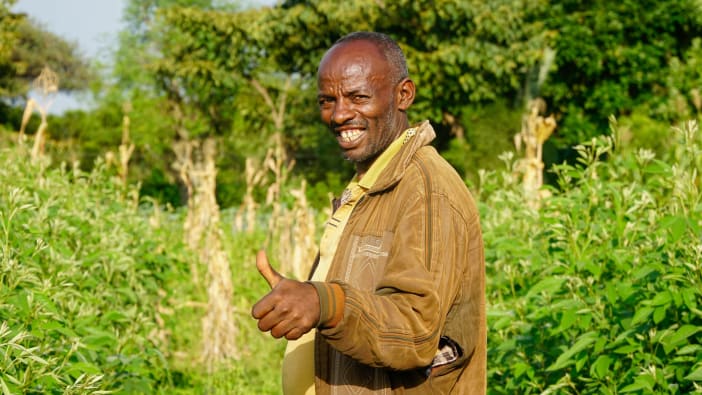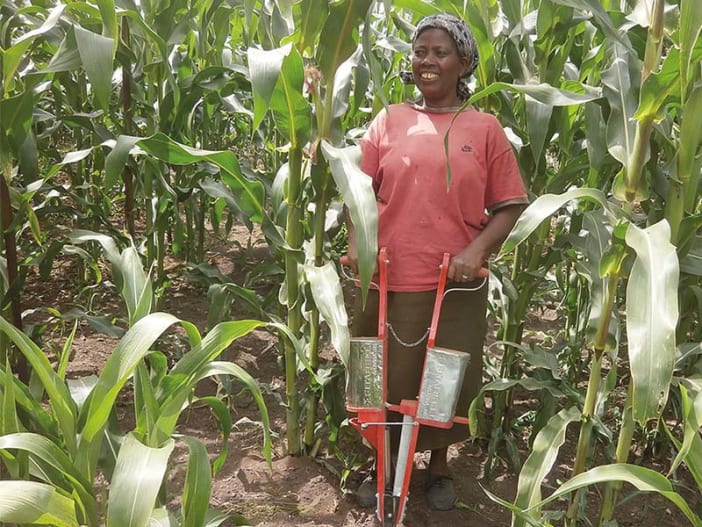In the last decade, animal loan or ‘pass-on’ schemes have been started all over the world. Usually an animal is given to a chosen beneficiary by an organisation, government body or church, with an agreement that a number of its offspring will be passed on to others in the community or back to the scheme organisers to start a new project. In some cases, particularly with male pack animals (used for traction or transport), loans will be repaid in cash rather than by passing on offspring. Such schemes have brought many blessings to families and communities.
However, starting an animal loan scheme is a serious project which should not be undertaken without careful thought and preparation. To help readers to think about this process, Footsteps has put together some questions to answer, either individually or in a group. You can also read advice from organisations around the world which have run their own schemes here.
Choice of beneficiaries
- Is there a shortage of livestock in the area?
- Have other methods for improving existing livestock management already been introduced?
- How successful were they?
- Is there a desire in the community to have a loan scheme?
- Who is most vulnerable in the community?
- Do potential beneficiaries have enough resources (land, labour, etc) to support any livestock they receive?
Choice of animal
- What kind of animal is commonly reared in the local area? What will this animal produce? Will this animal be able to contribute significantly to improving the wellbeing of the beneficiary families?
- Are local breeds the best choice or should other breeds be considered? Are certain animals inappropriate in the community for religious reasons?
Housing
- What kind of housing will this kind of animal require?
- Are the materials to build housing available locally?
Feed and water
- What kind of feed will the animals require? Is this available locally? If not, where will it be sourced? Could it be introduced to local farmers and grown locally?
- How available is water throughout the year? Will animals and humans compete for use of the same water supplies?
Loan agreements
- How many offspring will beneficiaries be required to pass on? How will this be checked?
- What kind of agreement will there be?
- What penalties will there be if people fail to repay the loan or pass on the offspring as required?
- How will poor management or neglect of the original animals in the scheme be dealt with?
Animal health
- How easy is it for the community to access animal health services?
- Where are drugs available for animals?
- Who will provide for routine preventative drugs and treatments?
- If there are no community-based animal health workers or paravets locally, can the community (or an organisation working with the community) lobby for services to come to the area?
- What diseases are common in the area? What can be done to prevent disease passing from animals to humans?
Knowledge of livestock management
- What do people in the local area already know about animal rearing and breeding?
- What kind of training might be needed before people receive animals? Who will provide this training?
- What training might increase the yield (milk, meat, wool etc)?
- How will the manure which the animals produce be used?
Produce
- Where will people sell any excess produce from the animal (eg wool/milk/skin)?
- What kind of training could be provided for people to improve their marketing skills?
With thanks to Send a Cow for their advice on this feature. For more on their work, visit
Loan scheme experiences from around the world
Experience from Malawi
‘The greatest impact of the scheme among community members is that it reached many vulnerable beneficiaries after starting with just a few. They have been able to improve their food security by making money from selling livestock. Some use the money to pay school fees as well as to buy uniforms and school materials for their children.’
EAGLES – Malawi
Experience from Zambia
‘Our parents used to have a lot of cattle and goats. Around 1990, animals started dying of diseases until we did not have even one single animal. Our lives changed suddenly, we had no milk, no money to pay for our school fees, we started using hand hoes for farming and the demand for inorganic fertilisers increased because we didn’t have any cow dung. In 2008, the Brethren in Christ Church (BICC) selected us to receive a cow and an ox on loan to use for draught power. After farming for two years we managed to pay back the loan and buy one more ox. Now we have three new animals in addition to the two we received initially.
BICC trained us on how to manage our animals. They also helped us with materials to construct a dip tank where all the people in the area dip their animals. At first it was difficult to manage these animals according to the necessary standards, but now we are managing well and we are happy. The animals are affordable and payments are flexible.’
Ather Mudenda, Zambia (a BICC beneficiary)









